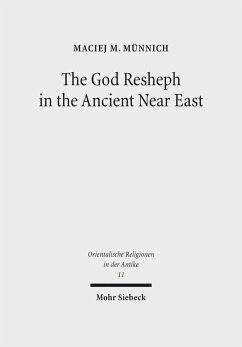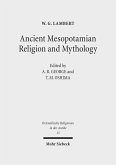Resheph was quite a popular god in the 3rd and 2nd millennia BC - especially in Syria - but during the 1st millennium his cult became extinct. Finally it was only maintained in several peripheral and isolated sites, such as in the Palmyra desert and in Cyprus. Maciej M. Münnich presents the written sources which mentioned Resheph and analyzes the features of Resheph's cult. He emphasizes that there is no confirmation for the theory that Resheph was a lord of the netherworld. Resheph was a belligerent, aggressive god who used diseases to attack people, but who could also heal. In Egypt, Resheph was originally venerated as the deity who supported the Pharaoh in battles, but then he was summoned mainly because of illness and everyday needs. In ancient Israel, Resheph was at first reduced to the level of a demonic assistant of Yahweh, but his name then became a common term, always however in reference to the character of the deity. Among the Hurrites, Resheph appeared as a divine guardian of trade. He was not treated as a solely harmful, dangerous god, as has been suggested in numerous previous studies. Born 1973; 2003 PhD from the Catholic University of Lublin, Faculty of Arts; 2012 Post-doctoral degree (habilitation) from the Catholic University of Lublin, Faculty of Arts; currently Head of the Department of Ancient History at the Catholic University of Lublin.
Dieser Download kann aus rechtlichen Gründen nur mit Rechnungsadresse in A, B, BG, CY, CZ, D, DK, EW, E, FIN, F, GR, HR, H, IRL, I, LT, L, LR, M, NL, PL, P, R, S, SLO, SK ausgeliefert werden.









